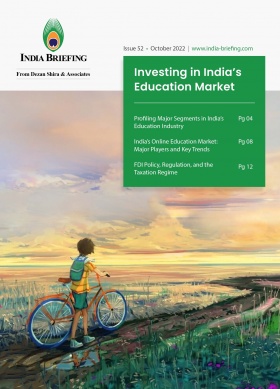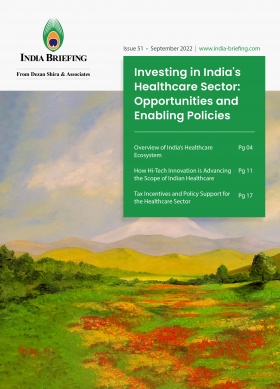Dubai Emerges as India’s Top Choice for Foreign Direct Investment
Dubai, one of the wealthiest emirates in the United Arab Emirates (UAE), has solidified its position as a prime destination for foreign direct investment (FDI) from India. According to a recent report by fDi Markets, a service from the Financial Times, India ranked among the top five source countries for announced FDI projects and estimated FDI capital in Dubai.
As per a recent report by Dubai’s Department of Economy and Tourism, India accounted for 12 percent of the total projects announced and four percent of the FDI received by Dubai in 2022.
What were the top sectors for FDI from India into Dubai in 2022?
The fDi Markets report highlighted an 89.5 percent year-over-year growth in total announced FDI projects and an impressive surge of 80.3 percent in total FDI capital, further enhancing Dubai’s economic standing.
According to data released by the Dubai FDI Monitor, the transportation and warehousing, hotels and tourism, renewable energy, software and IT services, and consumer products sectors emerged as the top five contributors, constituting 76 percent of the total estimated investment inflows into Dubai. These sectors also accounted for 68 percent of the announced FDI projects in the emirate.
Top sectors by FDI projects
With 77.5 per cent of greenfield projects, the top sectors by FDI projects from India into Dubai in 2022 were software and IT services (32 percent), followed by business services (19 percent), consumer products (nine percent), real estate (six percent), and financial services (five percent).
Top sectors by FDI capital
In 2022, the sectors that received the highest FDI capital from India into Dubai were as follows: consumer products (28 percent), software and IT services (20 percent), communications (19 percent), pharmaceuticals (eight percent), and business services (eight percent).
Deepening India-Dubai relations: Trade, investment, and beyond
India-Dubai economic collaboration
India and Dubai have a thriving economic partnership and are witnessing upward momentum in their bilateral trade. Both regions have recorded steady growth in trade volumes, driven by a diverse range of commodities and products. This has further been consolidated by the India-UAE Comprehensive Economic Partnership Agreement (CEPA).
Overall, key sectors for trade and business include oil and gas, textiles, gems and jewelry, pharmaceuticals, information technology, and agriculture.
Dubai, with its strategic location and world-class infrastructure, serves as a vital gateway for Indian businesses to access the Middle East, Africa, and other global markets. Many Indian companies have established a presence in Dubai, leveraging its business-friendly environment, logistics capabilities, and robust financial sector.
Helal Saeed Almarri, Director General of Dubai’s Department of Economy and Tourism, attributes Dubai’s leading global FDI ranking to a well-defined strategy aimed at strengthening the city’s business and investment environment. The Dubai Economic Agenda, D33, supports the emirate’s ambition to be one of the top three global cities. The achievement of attracting and stimulating FDI reflects the confidence that investors, multinational companies, start-ups, and global talent have in Dubai.
Travel-investment connection: Building bridges to business opportunities
Dubai has emerged as a preferred investment destination for Indian businesses and individuals, supported by a favorable business climate, investor-friendly policies, and a diverse range of sectors to explore. The emirate’s appeal extends beyond leisure travel, as it serves as a strategic gateway for investment opportunities. Indian investors are particularly attracted to Dubai’s real estate, hospitality, retail, and financial services sectors, among others.
The proximity of Dubai to India plays a significant role in fostering investment ties. Not only is Dubai easily accessible for Indian travelers, but it also provides a thriving business ecosystem that encourages exploration of investment potential. This symbiotic relationship between travel and investment drives Indian entrepreneurs and businesses to leverage Dubai’s reputation as a global business hub, enabling them to access international markets and fuel growth, collaboration, and economic success.
Cultural and people-to-people exchanges
The India-Dubai relationship thrives on robust people-to-people connectivity. Dubai’s significant Indian diaspora plays a vital role in fortifying the ties between India and the Emirate. The Indian expatriate community in Dubai contributes extensively to the region’s economic and social landscape, fostering growth and development. Beyond their economic impact, the vibrant Indian community in Dubai also promotes cultural exchange, social cohesion, and economic integration.
The Indian community makes up roughly 30 percent of the UAE’s population, per the Embassy of India. The presence of a large Indian population in Dubai serves as a catalyst for strengthening the business relationship between the two regions. Indian expatriates bring their entrepreneurial spirit, expertise, and industry knowledge to Dubai, contributing to its economic growth and diversification.
Dezan Shira & Associates maintain an office in Dubai and can assist with corporate registrations, tax advisory, employee visa applications, bank account opening, and other ongoing business and trade compliance matters. Please contact Maria Kotova at dubai@dezshira.com for assistance.
About Us
India Briefing is produced by Dezan Shira & Associates. The firm assists foreign investors throughout Asia from offices across the world, including in Delhi and Mumbai. Readers may write to india@dezshira.com for more support on doing business in India.
We also maintain offices or have alliance partners assisting foreign investors in Indonesia, Singapore, Vietnam, Philippines, Malaysia, Thailand, Italy, Germany, and the United States, in addition to practices in Bangladesh and Russia.
- Previous Article Indiens neue Außenhandelspolitik 2023 seit dem 1. April: Kernpunkte
- Next Article What You Need to Know About Conducting Due Diligence in India: Q&A









